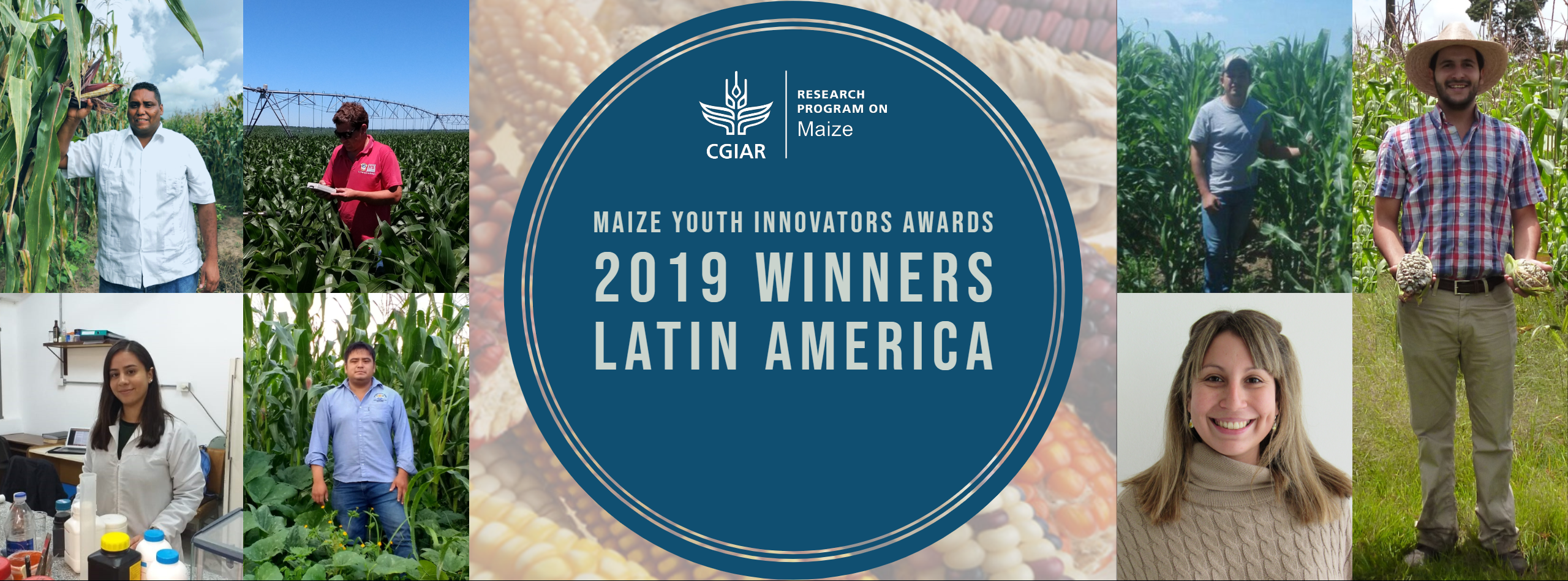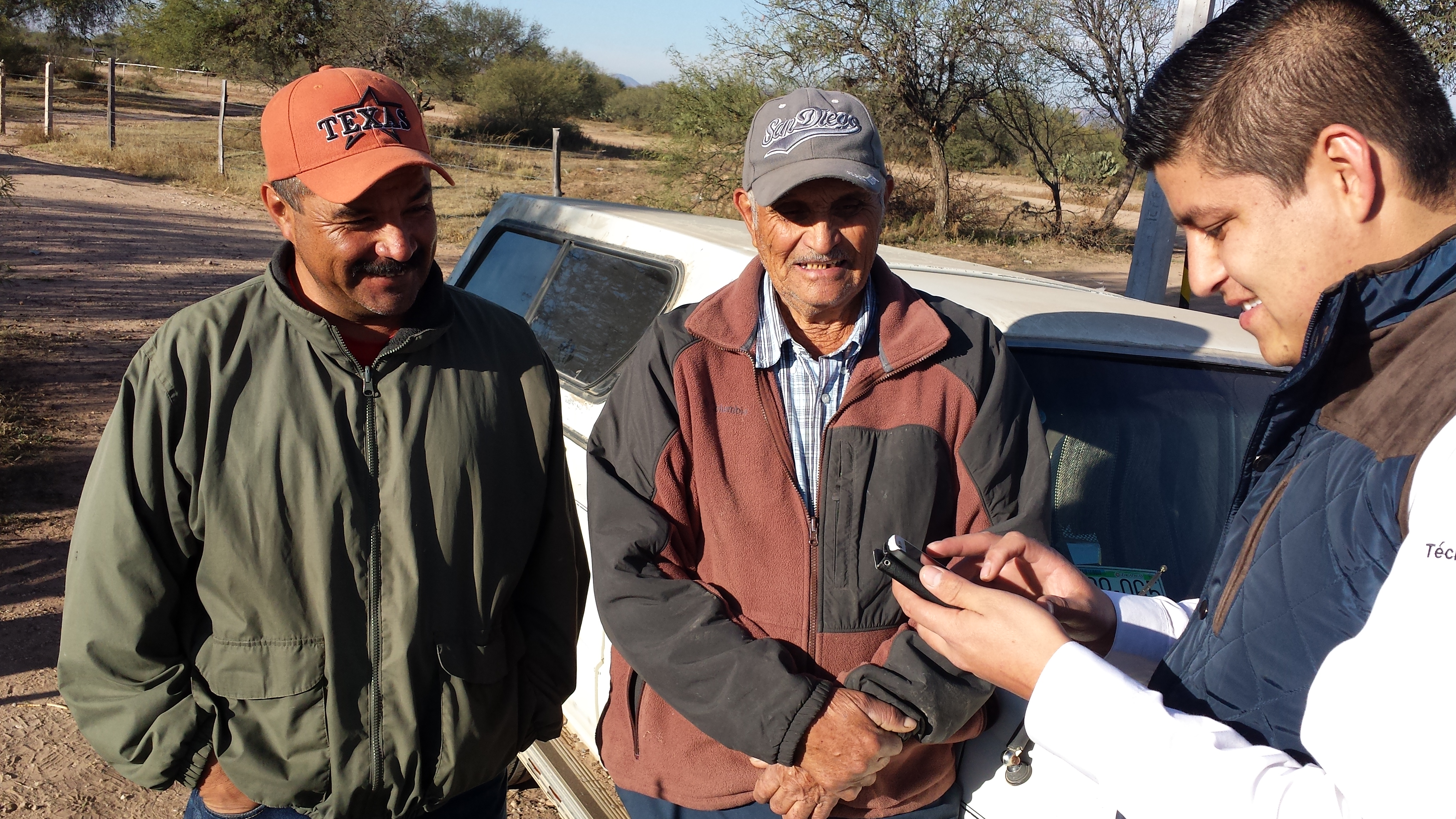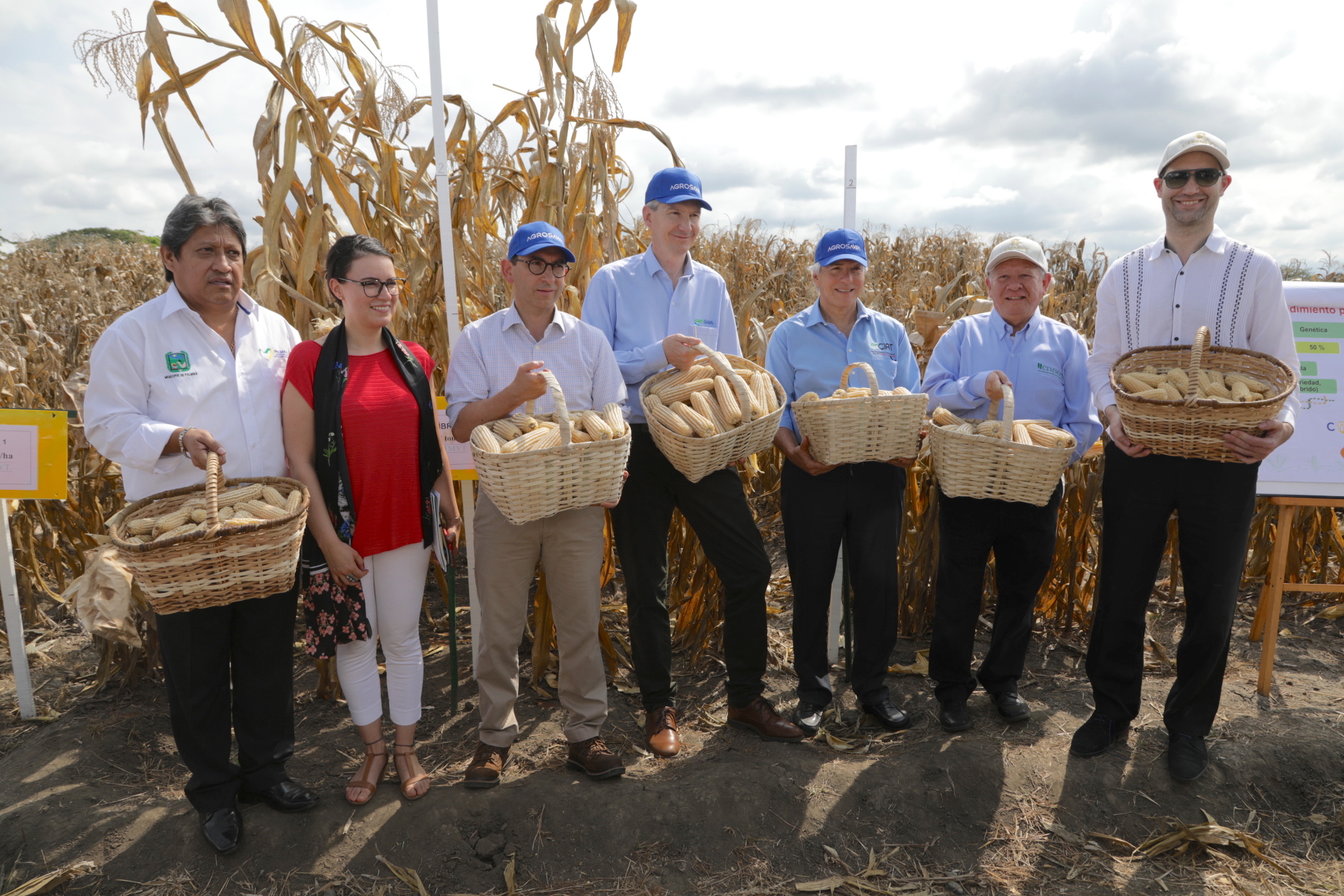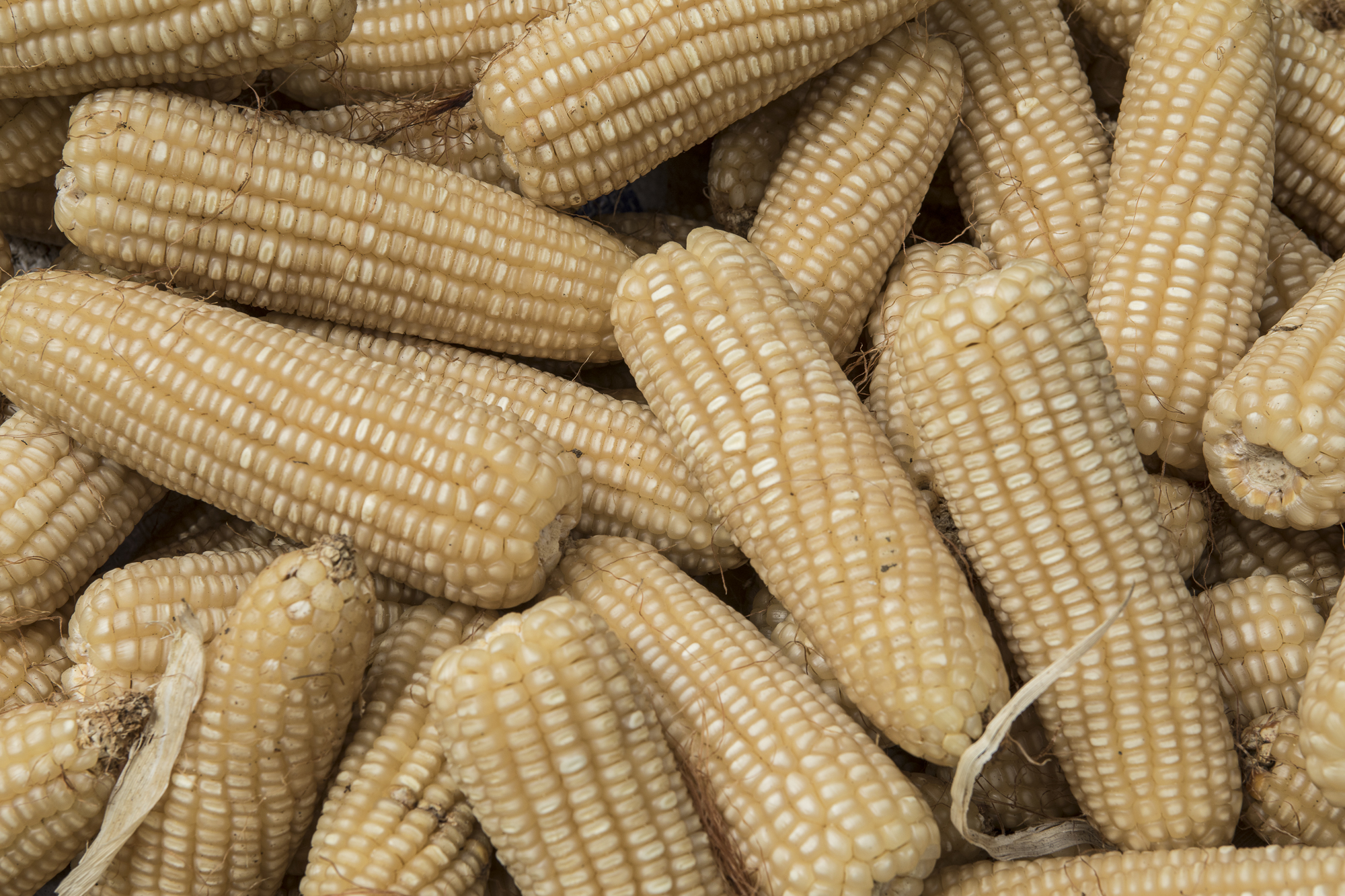Colombia
Winners of 2019 MAIZE Youth Innovators Awards – Latin America announced
 Capacity development
Capacity development
Seven young farmers, researchers and activists are advancing change, innovation and research in their communities.
UN-sponsored report acknowledges CIMMYT’s use of data and technologies to promote sustainable farming in Latin America
 Innovations
Innovations
CIMMYT’s work featured on the Counting on the World to Act report, produced by SDSN and TReNDS.
New partnership announced for sustainable maize production in Colombia
 Nutrition, health and food security
Nutrition, health and food security
The project will develop maize varieties adapted to the country’s farming conditions and will promote sustainable intensification practices among farmers.
First zinc maize variety launched to reduce malnutrition in Colombia
 Nutrition, health and food security
Nutrition, health and food security
A new zinc-enriched maize variety developed by CIMMYT was released in Colombia to help combat malnutrition in South America.
Improving diet through nutritious maize in Colombia
 Innovations
Innovations
A field day was organized at the International Center for Tropical Agriculture to show the advances of biofortified maize in Colombia.
Donors push for sustainable agriculture in Latin America and the Caribbean
 Capacity development
Capacity development
CIMMYT joins global partnership to find sustainable solutions to agriculture in Latin America and the Caribbean.
New technologies to increase coffee-maize system profitability
 Capacity development
Capacity development
To demostrate the advances of the project “Increasing the profitability of maize-coffee systems” conducted by CIMMYT in Colombia over the past 10 years in collaboration with the National Federation of Colombian Coffee Producers (FEDERECAFE, Spanish acronym), two field days were held at the Paraguaycito–Quindío (29 April) and La Catalina–Risaralda (7 May) Experiment Stations belonging to CENICAFE, FEDERECAFE’s research unit. At these events, attended by 158 representatives of the Local Coffee Growers’ Committees and the National Federation of Cereal Growers (FENALCE, Spanish acronym), the latest advances in the areas of climate change, agronomy and genetic improvement were presented.*
Maize protects Colombian coffee from climate change
 Climate adaptation and mitigation
Climate adaptation and mitigation
Preliminary results have shown that a maize-coffee cropping system acts like a huge atmospheric carbon sink, capturing up to 60 times more carbon than a coffee-bean system during one cycle of the associated temporary bean crop. In addition, maize creates a more adequate microclimate for coffee’s growth and development because it reduces air temperature, helps to maintain soil moisture and decreases daytime-nighttime soil temperature fluctuations. This has a buffer effect that benefits soil biochemical processes and improves crop productivity.
CIAT and CIMMYT complete genetic analysis and plant breeding course in Colombia
 Capacity development
Capacity development
AIP-maize establishes public-private variety evaluation network in Pakistan
 Nutrition, health and food security
Nutrition, health and food security



